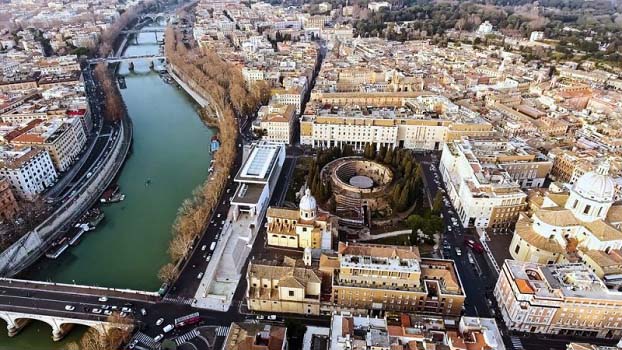Italy: Rome sells out of tickets for Mausoleum of Augustus until 30 June

Rome: Rome struggles to keep up with demand from visitors keen to step inside the newly-reopened Mausoleum of Augustus.
Tickets to visit the Mausoleum of Augustus – the tomb of Rome’s first emperor – have sold out for a second time, less than 24 hours after the ancient site reopened following a 14-year closure.
When the tickets first became available a few days before Christmas, via an online booking system, they were quickly snapped up, with all places taken until 21 April.
On its opening day, 1 March, the city announced that more tickets would be made available to visit the mausoleum, the largest circular funerary monument of the ancient world, up until 30 June.
However such is the demand from Romans keen to step inside the recently-restored site that tickets have sold out again, this time in less than 24 hours. Rome reopens Mausoleum of Augustus: ‘A dream becomes reality’
The mausoleum is free to everyone (lucky enough to get tickets) until 21 April, and after that it will remain free to all residents of the Rome for the rest of this year.
The reopening of the ancient site, which has been off-limits for much of the last 80 years, follows a major restoration – still ongoing – financed largely by Italian telecommunications company TIM, in a project that began under former Rome mayor Ignazio Marino.
Over the years many began to doubt the mausoleum would ever reopen, so when it finally did it attracted significant attention. However, due to Italy’s covid-19 regulations, it can currently only be visited by people already in Rome or the Lazio region.
Rome mayor Virginia Raggi described the reopening as a “a dream that becomes reality” and pledged that redevelopment and pedestrianisation works in Piazza Augusto Imperatore will return the surrounding area to its “former glory.”
In addition to more than €6 million in sponsorship from TIM, the restoration of the 13,000-sqm mausoleum was funded with around €4 million from the city and Italy’s culture ministry.
The restructuring works at the 2,049-year-old brick and travertine site included stabilising walls and ceilings and adding new stairs and suspended walkways.
Constructed in 28 BC, the mausoleum was intended for Augustus and the imperial family, including his wife Livia, his sister Octavia and his sons-in-law Macellus and Agrippa, however it also houses the remains of emperors Tiberius, Claudius and Nerva, and the empresses Poppaea and Julia Domna.
By the end of the 10th century, the mausoleum had become largely buried under earth and overgrown with trees, and during the Renaissance era it passed through the ownership of several powerful Roman families who used it as a garden.
In the late 18th- and early 19th century the structure was used as a bull-fighting ring. A century later it became a concert hall.
In the late 1930s the surrounding mediaeval buildings were demolished by Fascist dictator Benito Mussolini as part of his plans to reorder Rome.
In recent decades the vast monument has been the subject of numerous stalled renovation projects, one of which would have seen it ready in 2014 in time to mark the 2,000th anniversary of the death of Augustus.
The mausoleum is located near the corner of Via Ripetta and alongside the Ara Pacis museum, which contains Augustus’s Altare della Pace to commemorate the peace created by the emperor.





